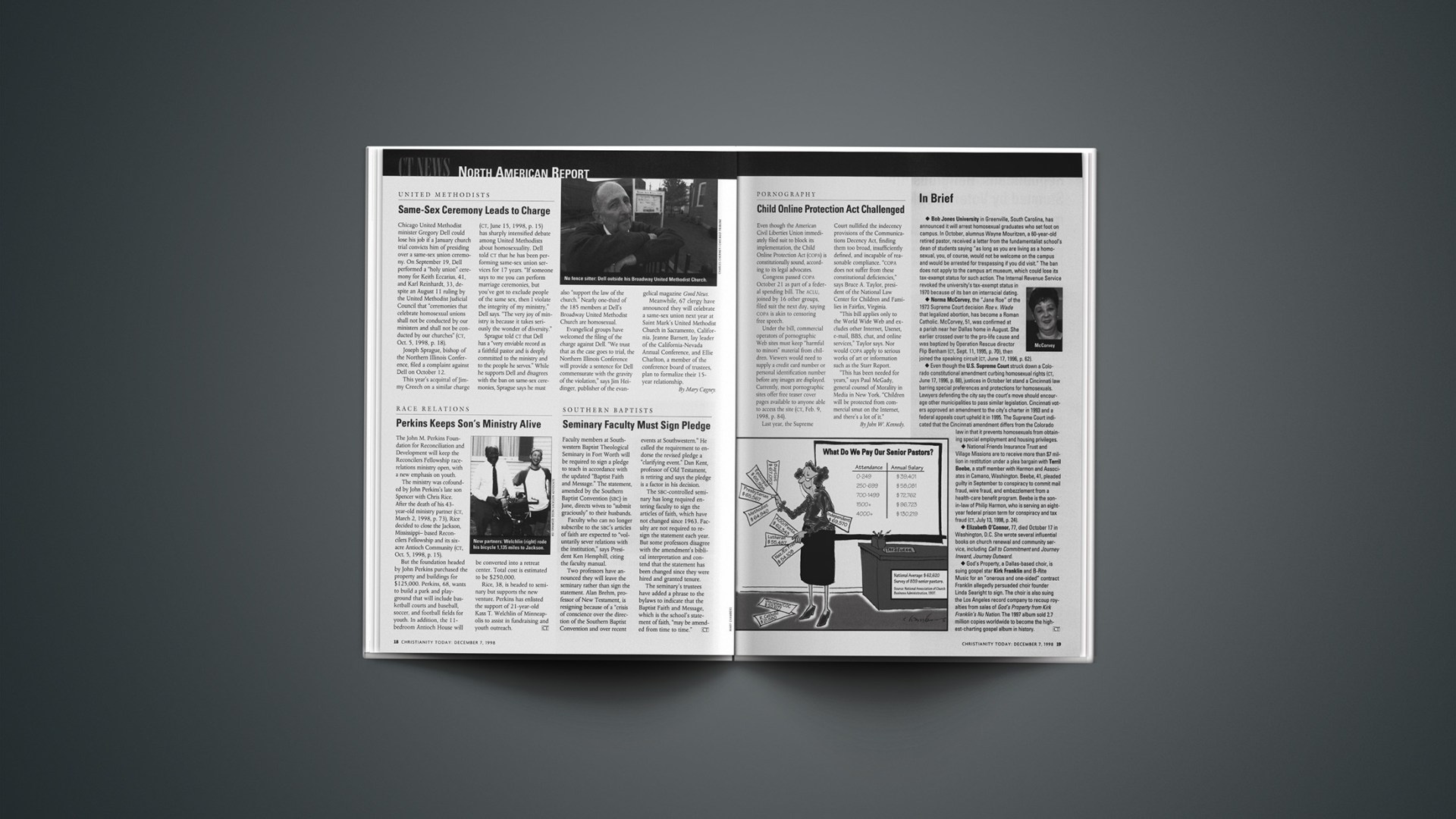Even though the American Civil Liberties Union immediately filed suit to block its implementation, the Child Online Protection Act (COPA) is constitutionally sound, according to its legal advocates.
Congress passed COPA October 21 as part of a federal spending bill. The aclu, joined by 16 other groups, filed suit the next day, saying COPA is akin to censoring free speech.
Under the bill, commercial operators of pornographic Web sites must keep “harmful to minors” material from children. Viewers would need to supply a credit card number or personal identification number before any images are displayed. Currently, most pornographic sites offer free teaser cover pages available to anyone able to access the site (CT, Feb. 9, 1998, p. 84).
Last year, the Supreme Court nullified the indecency provisions of the Communications Decency Act, finding them too broad, insufficiently defined, and incapable of reasonable compliance. “COPA does not suffer from these constitutional deficiencies,” says Bruce A. Taylor, president of the National Law Center for Children and Families in Fairfax, Virginia.
“This bill applies only to the World Wide Web and excludes other Internet, Usenet, e-mail, BBS, chat, and online services,” Taylor says. Nor would COPA apply to serious works of art or information such as the Starr Report.
“This has been needed for years,” says Paul McGady, general counsel of Morality in Media in New York. “Children will be protected from commercial smut on the Internet, and there’s a lot of it.”
Copyright © 1998 Christianity Today. Click for reprint information.










